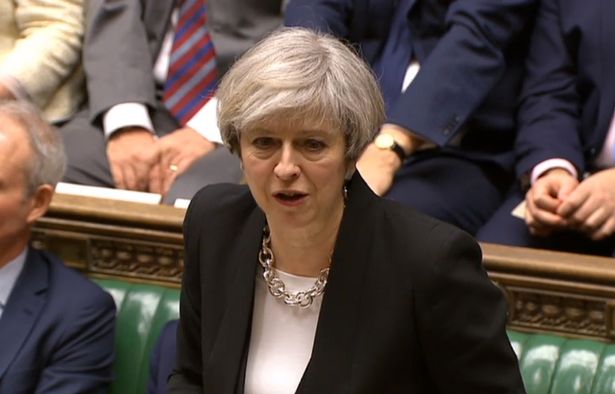Theresa May names two Russian suspects
September 6, 2018 | Expert Insights

Britain is to lay out a case against Moscow at the UN with Theresa May asserting that the suspects of the novichok poisoning were Russian military intelligence officers.
They were named by British police as Alexander Petrov and Ruslan Boshirov, believed to be aliases.
Background
Ties between the UK and Russia can be traced back nearly five centuries. The Russians and British were allies against Napoleon, and enemies in the Crimean War of the 1850s. They were rivals again during the Great Game for control of central Asia in the late 19th century. They were allies again in World Wars I and II, although relations were strained by the Russian Revolution of 1917. During the Cold War, the UK remained a strong ally for the United States and relations with the Soviet Union were fraught. The end of the Cold War also established better ties between the two nations.
The first Russian body for military intelligence was established in 1810 by the War minister Michael Andreas Barclay de Tolly who suggested to the Tsar the creation of a permanent body for Strategic Military Intelligence. In January 1810, The Expedition for Secret Affairs under the War Ministry was formed. Two years later it was renamed as the Special Bureau.
In 1815, the bureau became the First Department under the General Chief of Staff. In 1836 the intelligence functions were transferred to the Second Department under the General Chief of Staff. After many name changes through the years, in April 1906 the Military intelligence was carried out by the Fifth Department under the General Chief of Staff of the War Ministry.
Its first predecessor in Soviet Russia was created on October 21, 1918, under the sponsorship of Leon Trotsky, who was then the civilian leader of the Red Army. The Main Directorate of the General Staff of the Armed Forces of the Russian Federation (GRU) is the foreign military agency of the General Staff of the Armed Forces of Russia.
In March 2017, Sergei Viktorovich Skripal, a former Russian military intelligence officer turned spy for Britain’s intelligence services, was attacked. He and his daughter were found unconscious after falling victims to a poison attack. It was later revealed that they were attacked by a nerve agent.
Read more of our extensive analysis on the novichok poisoning here, here and here
Analysis
Britain will seek to intensify diplomatic pressure on Vladimir Putin after naming two Russian military intelligence officers it said were ordered to carry out the novichok poisoning attack in Salisbury.
In a special statement to the House of Commons, Prime Minister Theresa May, revealed the two suspects who flew into Britain to murder Sergei and Yulia Skripal in March are Officers of the Russian military intelligence.
The UK will appear before the UN Security Council on Thursday, to lay out the case against Moscow. For six months since the incident in Salisbury, the government has faced criticism over the apparent lack of evidence linking the crime to Russia.
Additionally, Britain’s most senior counter-terrorism officer, assistant commissioner Neil Basu, laid out a compelling trail showing how the suspects travelled from Moscow to London and then on to Salisbury, featuring numerous CCTV images and supporting details.
The pair, who are charged with conspiracy to murder, entered Britain forty eight hours before the assassination attempt, travelling on official Russian passports issued in the false names they used. British prosecutors said there was enough evidence to charge the Russian pair with conspiracy to murder Sergei Skripal, himself a former GRU officer who sold Russian secrets to Britain before settling in Salisbury, Wiltshire.
Police produced CCTV footage of the Russian assassination team during their 50-hour visit to Britain, entering at Gatwick airport at 3 pm on Friday 2 March, and smuggling in the novichok.
Counterpoint
There is no publicly-available evidence linking the two suspects to the Russian government and even their nationality may be different, considering that the police themselves say their passports may have been under false names. May's accusations are based on "unverifiable intelligence" rather than evidence.
It is also possible that Skripal case is related to organized crime. Britain harbours a lot of Russian exiles who are called dissidents but are actually criminals.
Assessment
Our assessment is that it’s hard to see the motive for the Russian state to neutralize a former GRU officer who was caught, released under pardon and exchanged in a 2010 spy swap. We believe the motive and the timing is also questionable as it happened just before Russia hosted the FIFA world cup – an event that was supposed to showcase Russia in a different manner as compared to the stereotypical portrayal by the Western media. We also feel that May might use it as a political capital and strengthen her leadership amid challenges from within her party and the opposition.








Comments